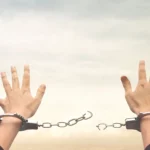You are here: [wpseo_breadcrumb]







Domestic violence is a type of relationship abuse that occurs within the home, and is typically used by one person as a means of gaining power or control over the other person. Sadly, the physical or emotional abuse characteristic of domestic violence is a long-standing pattern for many relationships, and this often makes it difficult for victims to finally make the decision to break free from the abuse, however damaging it may be. There are also cultural and social factors that influence some victims’ decision to remain with abusive partners despite the physical and emotional pain it causes them. Domestic violence is a serious issue that can result in permanent injury or even death, and it’s an issue that affects men as well as women. If you have been the victim of domestic violence in San Diego, contact San Diego Domestic Violence Attorney, today to speak to an experienced domestic violence attorney about your legal options.
What is Domestic Violence?
Domestic violence is characterized by persistent abusive behavior meant to harm, manipulate, humiliate, terrorize, coerce, frighten, isolate or intimidate another intimate partner, and the physical, psychological and emotional consequences of domestic violence can continue long after the abuse has ended. Unfortunately, domestic violence isn’t always apparent to outsiders, especially if it doesn’t result in visible injuries, which only makes it easier for the abuse to continue unimpeded. The following are some signs of an abuser to look out for if you believe you or someone you know may be the victim of domestic violence:
- Your partner insists on accompanying you everywhere you go
- Your partner is jealous of your time, your career or other people in your life
- You are discouraged from talking to or spending time with friends, family members or coworkers
- Your partner plays mind games with you
- Your partner continually belittles you or talks down to you
- Your partner calls you offensive names
- Your partner criticizes your feelings, opinions or ideas
- Your partner gets violent when he/she drinks or uses drugs
- Your partner blames you if something goes wrong
- Your partner comes from an abusive or highly dysfunctional home where violence was considered a normal part of an intimate relationship
- Your partner experiences mini-bursts of anger
- Your partner uses shame or guilt to control a situation or to get his/her way
- Your partner frequently loses his/her temper and becomes aggressive
- Your partner plays down acts of aggression as minor incidents
- Your partner apologizes for any abuse and promises it won’t happen again
- Your partner believes that domestic violence is a myth or exaggeration
Many people incorrectly assume that domestic violence is characterized by physical abuse alone, when it can actually take on any number of forms, including emotional abuse, sexual abuse and coercion, reproductive coercion, financial abuse and digital abuse. The above-mentioned warning signs are indicative of varying stages of emotional abuse, which may be a precursor to physical abuse. Angry words, for example, can lead to a push or slap, which can easily escalate into punching, choking or another type of physical abuse, and the more often this escalation occurs, the more likely it is to happen again and again, and to become more and more severe. If you recognize one or more of these signs in your relationship, you may be the victim of domestic violence, and you may also be at risk for physical abuse.
The Role You Play in Your Partner’s Abuse
Domestic violence is a national concern, one that crosses all demographic borders, though the majority of cases we hear about on a regular basis involve the abuse of a woman by a man. According to the National Coalition Against Domestic Violence (NCADV), one in three women and one in four men have been victims of some form of physical violence by an intimate partner in their lifetime.
It’s natural to want to place all the blame on the abusive partner in the case of domestic violence, but it takes two people for an act of domestic violence to occur, and it’s important to recognize the role you play in your abusive relationship, so you can put a stop to it or get out of the relationship before you suffer any lasting injuries. Unfortunately, many victims of domestic violence feel guilt or shame as a result of the abuse they sustain at the hands of their partner, which only causes the abuse to persist. If the following factors sound familiar, you are not in a healthy relationship, and you may be allowing domestic violence to occur in your home without even realizing it:
- You have low self-esteem
- You grew up in an abusive or highly dysfunction home and tend to equate the highs and lows of abuse with love
- You believe in traditional, stereotypical relationship roles
- You accept responsibility for your partner’s behavior to avoid confrontation
- You accept responsibility for disagreements or arguments even if you’re not at fault
- You feel like you are constantly walking on eggshells around your partner
- You tell yourself the abuse isn’t bad enough to leave
- You feel guilty if your partner becomes jealous, even if it’s for no reason
- You allow yourself to be controlled because you believe the desire to control is indicative of love
- You believe jealously is proof of love
- You believe abuse is a normal part of an intimate relationship
- You believe that domestic violence is a myth or exaggeration
The Far-Reaching Impact of Domestic Violence
Domestic violence affects millions of people around the world and is the leading cause of injury to women between the ages of 15 and 44 in the United States, resulting in problems like insomnia, psychosomatic illnesses, eating disorders, generalized chronic pain and mental health disorders, in addition to the immediate physical injuries they suffer at the hands of their abusers. Women abused by their intimate partners also face a greater risk of contracting HIV or other STI’s due to forced intercourse or prolonged exposure to stress, and domestic violence statistics show that abuse victims are more vulnerable to developing addictions to tobacco, alcohol or drugs.
Domestic violence doesn’t always affect just the victim though, it can also have a lasting effect on family members, friends, coworkers and others who witness the abuse of someone they care about. According to NCADV, one in 15 children are exposed to domestic violence each year, and 90% of these children are eyewitnesses to the violence. Even more alarming, growing up in an abusive home may predispose some children to certain physical and social problems, and also teaches them that violence is a normal part of an intimate relationship, thereby increasing their risk of becoming a domestic abuser or a victim of domestic abuse in adulthood.
Free Domestic Violence Consultation in San Diego
Domestic violence is a crime in all 50 states, and California has laws in place that protect victims of domestic violence from their abusers, with strict penalties for all types of abuse, including physical, emotional, sexual, financial, reproductive and digital abuse. And while most instances of domestic violence occur between spouses or domestic partners, the law states that anyone a person has lived with, has a child with, has dated, has been engaged to, or is related to by blood or marriage can be a victim of domestic violence, including roommates, housemates, elders, children and same-sex partners, all of whom are protected under California domestic violence statutes. If you need domestic violence help in San Diego, contact San Diego Domestic Violence Attorney, today to discuss your legal options with a skilled attorney. With decades of combined trial lawyer experience, the attorneys at San Diego Domestic Violence Attorney, are your best source for help in a domestic violence case. Call (619) 430-2355 now for a free domestic violence consultation.



PRACTICE AREAS
RECENT BLOG POSTS
Posting Bail For Domestic Violence In San Diego

Defending Against Rape Charges in California: Insights from Samantha Greene’s Successful Trial
Call us today for a free consultation
(619) 304-4993
This Is Attorney Advertising. This website is designed for general information only. The information on this website should not be construed to be formal legal advice nor the formation of attorney/client relationship. You are not considered a client unless you have signed a retainer agreement and your case has been accepted. Prior results do not guarantee a similar outcome with respect to any future matter. Please call or email our firm for a free no-obligation case evaluation.











